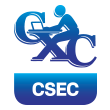As more Caribbean students look to North American universities to pursue their tertiary education, CXC is constantly in discussion with universities and colleges to ensure students transition smoothly from CAPE into their bachelors programme.
One of the strategies for doing that is the signing of articulation agreements between CXC and universities and colleges. Over the last six months, the Council has been able to conclude three articulation agreements. The agreements were signed with Monroe College, Johnson and Wales University and Oglethorpe University. In addition, more universities are publishing CAPE Equivalence Credit Charts, while other universities are updating their CAPE Credit Charts as more students present their CAPE qualification.
Monroe College
“This Articulation Agreement is designed to facilitate the most efficient and expeditious
incorporation of CXC’s transferees into the student body of Monroe College,” states a section of the agreement with Monroe College.
The agreement with Monroe focuses on two particular programmes which the college is known for internationally: the Bachelor’s in Business Administration in Business Management and the bachelors in Information Systems.
“This articulation agreement between Monroe College and CXC focuses on the procedures to be observed by graduates of CXC who have successfully completed the Associate Degree at CXC and who plan to continue through Monroe College’s baccalaureate program curricula leading to the attainment of the Bachelor of Business Administration in Business Management, or Information Systems,” the agreement further explained.
Under the agreement, Monroe College will accept up to 21 credits, the equivalent of one year’s worth of credits from students who have completed a CXC Associate degree in good academic standing.
In this regard, Monroe will accept students with Grades I to III as eligible for transfer credit provided they are part of the Associate degree. Individual CAPE Units will be evaluated on an individual basis.
Oglethorpe University
Oglethorpe University is a small, selective Liberal Arts school in Atlanta, Georgia. After almost a year of discussions, CXC and Oglethorpe signed an agreement late in 2009.
The agreement provides for, “any student attaining an Associate degree from CXC will be granted 28 semester credit hours in major or minor subject areas offered at Oglethorpe University.” The 28 semester credits are equivalent to one full year at Oglethorpe.
For students who have successfully completed CAPE and who do not have an Associate degree, four semester credits will be awarded for each Unit successfully completed. Credits will be given for Grade IV or better.
Students with CAPE Units 1 and 2 in Chemistry and Physics will be well rewarded with credits and exempted from several first year courses. Chemistry will command exemptions from CHM 101 and CHM 101 Lab, CHM 102 and CHM 102 Lab, and General Chemistry I and II with Labs.
Physics students can expect to be exempted from PHY 101 and PHY 101 Lab, PHY 102 and PHY 102 Lab, and General Physics I and II with Labs.
Students entering with Pure Mathematics will be exempted from MAT 131 and 132 and Calculus I and II.
Electrical and Electronic Technology students will benefit from three exemptions: PHY 232 and PHY 232 Lab and Fundamentals of Electronics with Labs.
Johnson and Wales University
Johnson and Wales University has four campuses around the United States: Providence, Rhode Island; North Miami, Florida; Denver, Colorado; and Charlotte, North Carolina. It is different from most universities, in that, it operates on a three-term system, rather than the two-semester system which has been adopted by most universities.
After initial discussions in 2008, Johnson and Wales and CXC finally put pen to paper in January 2010 with an articulation agreement. Under the agreement, CAPE grades of IV or better are awarded transfer credit. In most cases, each Unit is awarded 4.5 credits however, in some cases a Unit may attract more credits depending on the JWU course equivalent. For Accounting Unit 1, students will receive credits for Accounting 1, Business Accounting 1 and Hospitality Accounting 1. They will receive similar credits for Accounting Unit 2 at a higher level, that is, Accounting II, Business Accounting II, and Hospitality Accounting II.
Known for its hospitality and business programmes, JWU offers three course exemptions for both Units of Food and Nutrition. For Food and Nutrition Unit 1, students get exempted from Introduction to Nutrition, Hotel Food and Beverage Operations and Essentials of International Food and Beverage; while for Food and Nutrition Unit 2, they are exempted from Menu Planning and Cost Control, Food and Beverage and Cost Control and one Hospitality Elective.
Johnson and Wales will only award credits for Units which apply to the students’ intended major.
“Our agreement is very important to JWU as we’ve been committed to welcoming students to JWU from the Caribbean for many years,” stated Fred Johnson, JWU’s Director of Caribbean and Latin American Relations. “Anything that we can do to make that process easier and smooth for your students, we will do it.”
“Our best students come from the islands and we need more of them, so this was an easy way to make the process easier for any student considering to study at JWU,” Johnson explained.
CAPE Equivalency Chart
“The Caribbean Advanced Proficiency Examination (CAPE) indicates a level of achievement that may qualify a student for advanced standing.” This statement is from Brandy Fransen, Senior Admission Representative at Savannah College and Art and Design (SCAD), who has been recruiting students in the Caribbean for almost 10 years.
SCAD, based in Atlanta, Georgia recently published a CAPE Equivalency Chart showing its credits for CAPE courses. SCAD operates on a 10-week quarter system and not a semester system. Each subject at SCAD is worth five credit hours. Students can earn up to 45 credit hours from exemptions with their CAPE Units. This is equivalent to one year, since the summer quarter is optional.
CAPE Units are accepted as general education elective, free elective or in the cases of Art and Design and Geometrical and Mechanical Engineering Drawing, they are accepted as exemptions for studio electives.
http://www.scad.edu/admission/transfer/caribbean-proficiency-exam.cfm
The Washington-based American University has updated its listing of CAPE subjects receiving credits. “If you are taking CAPE Unit II level exams and score either Grades I or II on any of the following subjects, and if you are admitted to AU and join our global community, you will receive advanced standing AND credits for AU level classes…” stated Evelyn Levinson, Director of International Admissions at American University.
AU has so far evaluated nine CAPE subjects including the three natural sciences, both foreign languages, Mathematics, Literatures in English, Geography and Economics.
Students received eight credits each for Chemistry and Physics; six credits each for Economics, French, Spanish, and Geography; four credits each for Biology, Mathematics and three for Literatures in English.
“We at AU value CAPE and the education that you have received at home,” said Ms Levinson. “Depending on how many of the above exams you took and your marks, you may be able to graduate in 3.5 years instead of 4 years and save time and expenses.”
St Mary’s University in Halifax, Nova Scotia, Canada has also updated its CAPE Equivalency Chart from 2008. St Mary’s has now approved 13 CAPE subjects for transfer credits.
“For each CAPE course, the equivalent of six credit hours at Saint Mary’s University is granted,” noted Dr Paul Dixon of St Mary’s University. Students must have achieved Grades I to III in order to benefit from the credits and exemptions.
The subjects approved so far are Accounting, Biology, Caribbean Studies, Chemistry, Communication Studies, Computer Science, Economics, Environmental Science, French, Management of Business, Physics, Pure Mathematics and Spanish. Each of the equivalent St Mary’s subjects, with the exception of Environmental Science and Spanish, counts as three credit hours; those two count for six credits each.














#Good info
Great! I like the idea